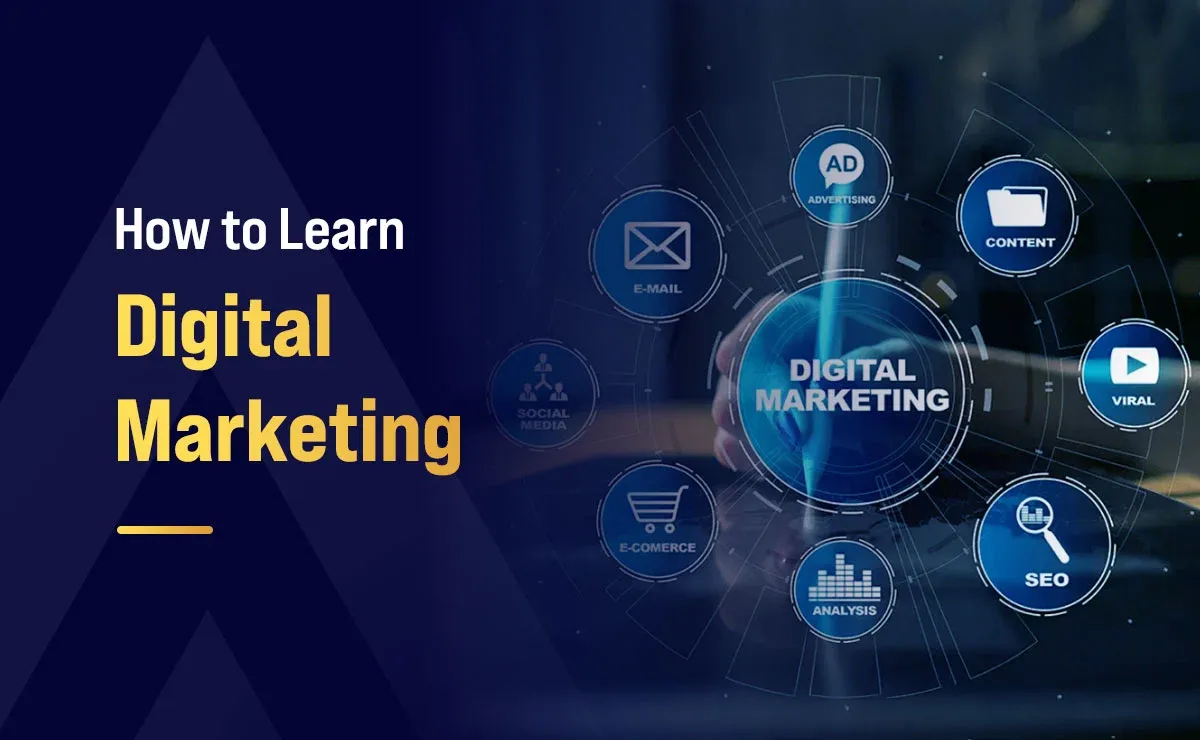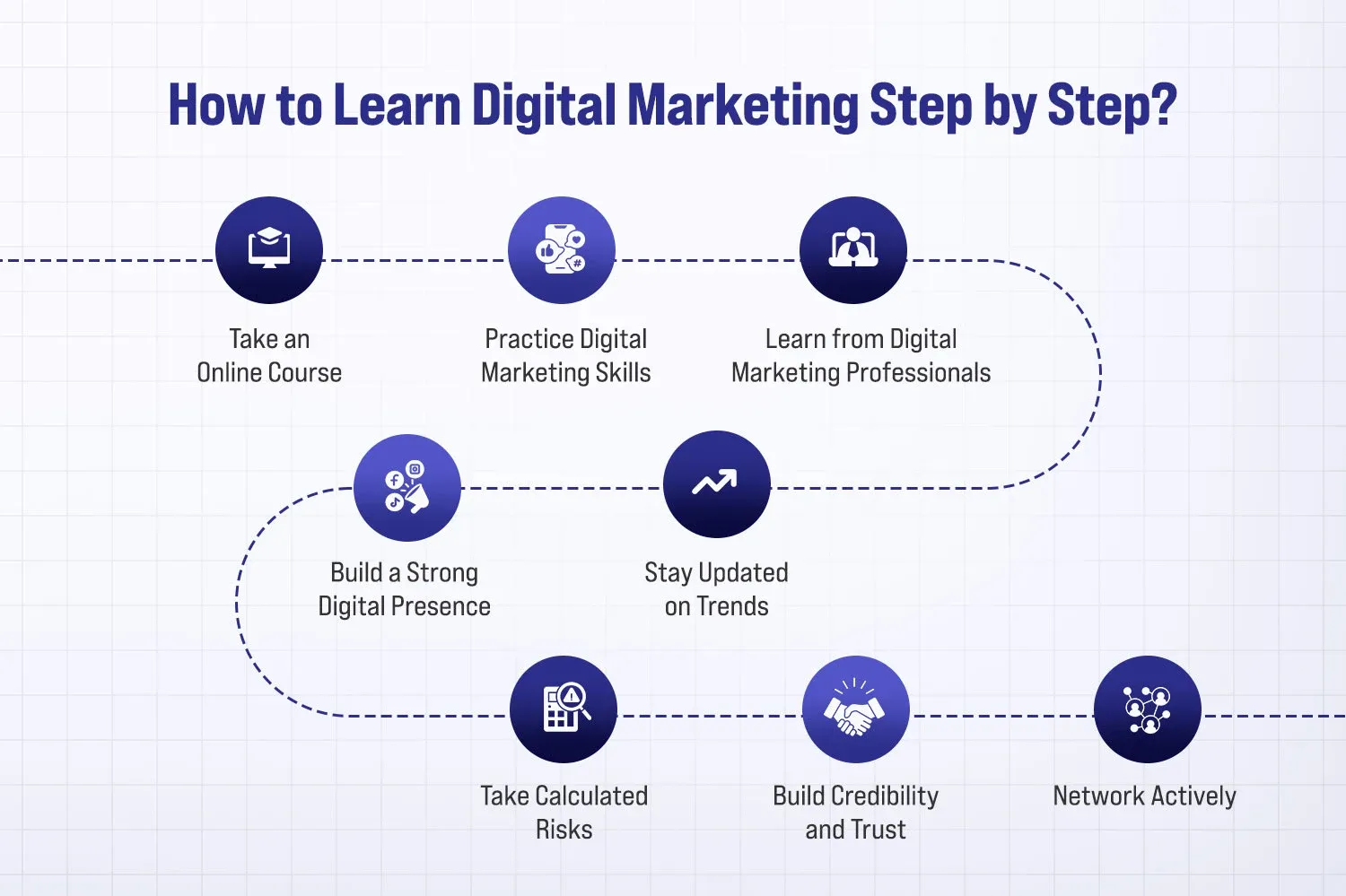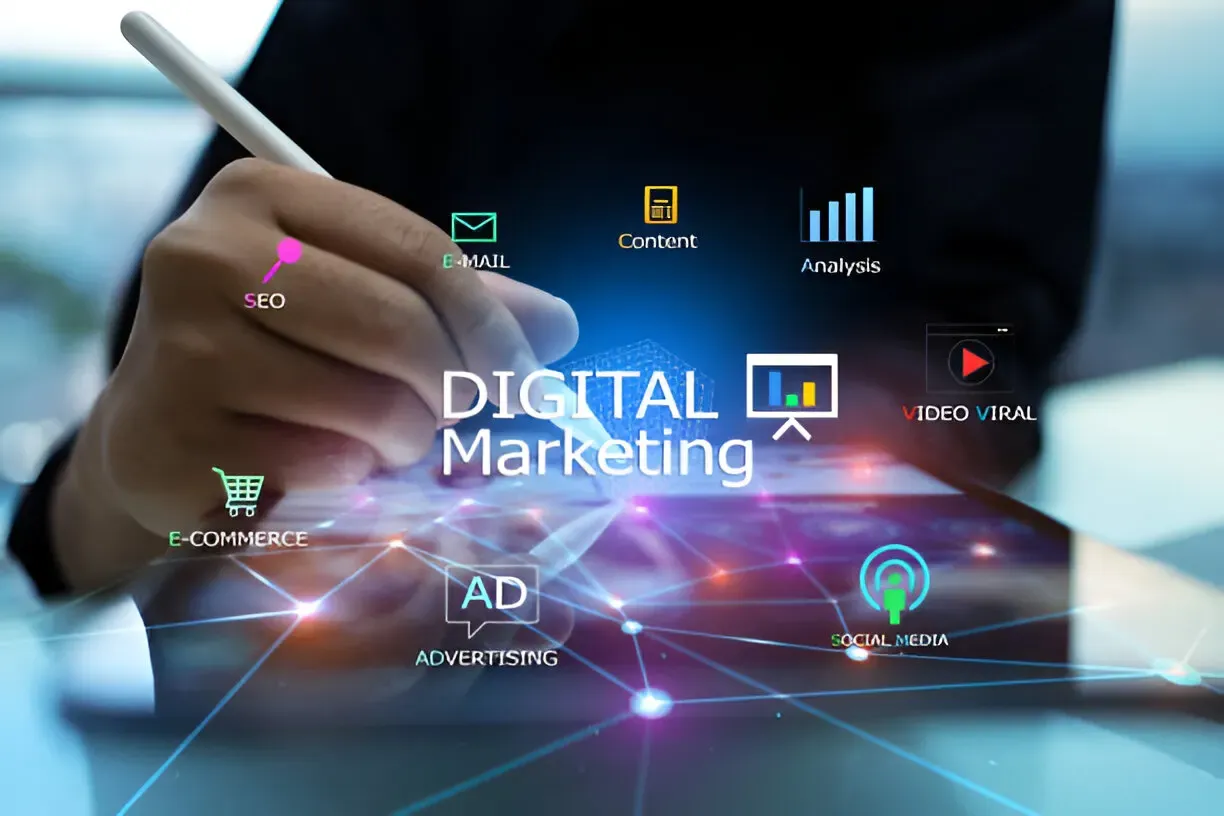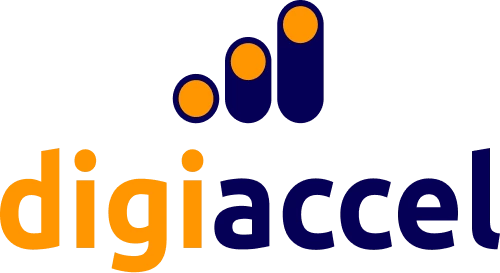How to Learn Digital Marketing?

In today’s digital-first landscape, businesses across all industries—regardless of size—are rapidly adopting digital strategies to stay competitive and meet evolving market demands. It’s not just digitally native companies like Zomato and Blinkit that are investing heavily in digital transformation; even legacy companies like HUL are accelerating their digital efforts to keep pace and remain relevant in a highly competitive environment.
Whether you're an aspiring marketer eager to enter the field or an experienced expert seeking to sharpen your expertise, digital marketing serves as a pathway to lucrative, in-demand career prospects. With the continuous evolution of technology, including the emergence of Web 3.0 and the Metaverse, staying ahead of the curve in this field is no longer optional but essential.
So, where do you start your adventure into the dynamic realm of digital marketing? Let’s dive in.
What is Digital Marketing?
Digital marketing, or online marketing, involves strategically promoting products or services through digital platforms to engage both existing and prospective clients. These platforms encompass websites, email campaigns, search engines, social media networks, mobile applications, and various digital communication methods.
Unlike traditional marketing, digital marketing leverages the internet to deliver targeted, data-driven campaigns that enhance brand visibility, improve customer engagement, and drive sales. With people spending more time online, digital marketing enables businesses to meet customers where they are most likely to see and react to their products and services.
With the growing emphasis on marketing automation and artificial intelligence, businesses are increasingly using digital tools to streamline operations and meet rising customer expectations. In fact, a study by Forrester Consulting found that 88% of marketers believe their organizations need to ramp up their use of automation and AI to remain competitive.
How to Learn Digital Marketing Step by Step?

In today’s rapidly evolving, digitally driven economy, mastering digital marketing has transitioned from a useful skill to an essential career requirement. Whether you want to grow your business, launch a side hustle, or land a full-time role in marketing, mastering digital marketing opens the door to countless opportunities. Here are some tips for learning digital marketing:
Take an Online Course
The most accessible and efficient way to start learning digital marketing is by enrolling in an online course. These programs, often created by top universities, marketing professionals, and tech companies, cover core concepts like SEO, social media marketing, email campaigns, paid ads, and more.
Whether you opt for a free crash course or a certified program from platforms like Google Digital Garage, HubSpot Academy, or Coursera, a structured curriculum helps you build a solid foundation. Many of these courses also include hands-on assignments and simulations, allowing you to apply your knowledge in a guided environment.
Practice Digital Marketing Skills
Theory becomes powerful when paired with action. After absorbing the fundamentals, it’s crucial to put what you’ve learned into practice. Start with small projects: run a personal blog, promote a mock product on social media, or experiment with SEO for a website. Tools like Google Analytics, Meta Ads Manager, and Canva give you free or low-cost ways to test your skills.
As you practice, focus on analyzing performance—track metrics, test variations, and optimize campaigns based on data. This iterative learning approach enables you to identify high-performing tactics while sharpening your analytical and decision-making skills.
Learn from Digital Marketing Professionals
One of the best ways to fast-track your learning is to observe and engage with those already succeeding in the field. Identify top digital marketers, follow them on platforms like LinkedIn, Twitter, or YouTube, and pay attention to how they communicate, build brands, and engage with audiences.
Follow industry blogs, subscribe to expert newsletters, and tune into marketing-focused podcasts for ongoing insights. This exposure helps you stay updated on current trends, discover new tools, and get real-world insights that you won’t always find in textbooks or courses.
Build a Strong Digital Presence
To learn digital marketing, you need to live it. Your own digital presence—whether it’s a portfolio site, LinkedIn profile, or content hub—acts as both a learning lab and a resume. As you build your presence, you’ll apply critical marketing skills: personal branding, content strategy, social media management, and more.
A well-crafted digital footprint also demonstrates credibility to potential employers or clients. Make sure everything—from your bio to the content you share—reflects your personal brand and professional goals.
Stay Updated on Trends
The digital marketing landscape changes swiftly, influenced by advancements in technology, updates in platform algorithms, and shifting consumer behaviors. To stay ahead, regularly consume content from reputable sources and listen to podcasts, attend industry webinars, read newsletters, and engage in marketing communities.
Staying informed about emerging tools and concepts like AI, marketing automation, voice search, and data analytics empowers you to create innovative, effective campaigns. This proactive learning keeps your skills sharp, and your strategies aligned with what’s working in the real world.
Take Calculated Risks
Digital marketing is constantly evolving, and embracing adaptability is key to staying ahead. Trying out new tools, formats, or unconventional strategies can lead to unexpected breakthroughs. Whether it's A/B testing ad creatives or exploring new social platforms, calculated risks allow you to discover what resonates best with your audience.
Even if an experiment doesn’t yield success, it offers valuable insights. Over time, this approach strengthens your creativity, sharpens your adaptability, and helps you build confidence in making data-informed decisions.
Build Credibility and Trust
Start by consistently delivering on promises like meeting deadlines, being transparent about your capabilities, and always backing your strategies with data. Good communication goes a long way as well, as it helps you deal with stakeholders regularly, explain your methods clearly, and own up to mistakes when they happen.
Beyond project delivery, credibility is also built through thought leadership. As you build a portfolio of reliable work and professional interactions, your name becomes associated with quality, making it easier to attract new opportunities, collaborations, and referrals.
Network Actively
Networking is an asset in the digital marketing world. Engage with communities, contribute to conversations, and attend events (both virtual and in-person). Working alongside peers introduces you to innovative concepts, resources, and methodologies that can enhance your expertise.
By actively participating in conversations, distributing insightful content, or partnering on initiatives, you establish yourself as an engaged and dedicated learner. Cultivating meaningful professional connections not only accelerates your development but can also open doors to mentorship and career advancement.
Why Are Digital Marketing Skills Important?

In today’s digitally driven world, digital marketing skills are not just valuable—they're essential. Whether you're an aspiring marketer, a business owner, or a professional from another field, understanding how to promote products or services online can significantly impact your success. Here’s a breakdown of why digital marketing skills matter across various aspects:
- Relevance in the Modern Job Market: As businesses shift more of their operations online, the demand for skilled digital marketers continues to grow. From startups to global corporations, companies are looking for professionals who can plan, execute, and manage online campaigns effectively. A career in digital marketing presents a wide array of roles, such as SEO specialist, content strategist, PPC analyst, and social media coordinator.
- Rapidly Expanding and Adapting Sector: Digital marketing stands as one of the most dynamic industries, constantly evolving due to technological innovations, consumer trends, and competitive forces. Proficiency in areas like data analysis, automation, content strategy, and AI implementation is increasingly vital. This dynamic environment makes digital marketing a space full of innovation and room for rapid career growth.
- Driving Business Success and Market Advantage: For startups and business owners, digital marketing expertise is indispensable. It enables cost-efficient promotion, precise audience targeting, and real-time performance monitoring. Mastering these skills reduces dependency on external agencies and gives you control over your brand's digital narrative.
- Grounding Strategies in Analytics: Digital marketing relies heavily on measurable insights. Knowing how to interpret analytics from platforms like Google Ads or social media insights allows marketers to make informed decisions. Analyzing customer interactions, campaign effectiveness, and return on investment allows for refined tactics and stronger business outcomes.
- Practical Skills with Tangible Impact: Unlike some fields that are purely theoretical, digital marketing lets you apply what you learn almost immediately. Whether it’s running a small blog, managing a brand’s Instagram page, or launching email campaigns, the skills you gain have real-world applications that can influence visibility, engagement, and conversions.
- Versatility Across Industries: Digital marketing isn’t confined to one industry—it’s needed everywhere. Healthcare, education, fashion, technology, real estate, and non-profits all leverage digital strategies to connect with audiences. This versatility ensures that digital marketers can find roles in sectors that align with their personal passions or professional goals.
FAQs
Q1. How to learn digital marketing at home?
Ans: You can learn digital marketing on your own at home through online courses, tutorials, YouTube channels, and free resources offered by platforms like Google, HubSpot, and Coursera. Many successful digital marketers are self-taught.
The key is to stay consistent, practice regularly, build projects, and stay updated with industry trends. Real-world application and experimentation will help solidify your skills over time.
Q2. What are the top 7 types of digital marketing?
Ans: Here are the seven most prevalent forms of digital marketing in use today:
- Search Engine Optimization (SEO): Enhancing a website’s ranking on search engine results pages.
- Email Marketing: Delivering personalized email campaigns to foster leads and strengthen client connections.
- Content Marketing: Crafting and distributing meaningful, audience-focused content to engage potential buyers and foster brand loyalty.
- Social Media Marketing: Promoting brands on platforms like Instagram, LinkedIn, and Facebook.
- Pay-Per-Click Advertising (PPC): Launching and optimizing sponsored campaigns across search engines such as Google Ads and Microsoft's Bing Ads.
- Affiliate Marketing: Generating income by strategically marketing and recommending external brands' offerings in exchange for performance-based rewards.
- Influencer Marketing: Partnering with digital creators and industry voices to authentically showcase products or services to their engaged communities.
Summing Up
In a world where digital interactions shape consumer behavior and brand perception, mastering digital marketing is more than just an added skill; it’s a strategic advantage. Whether you're starting your career, launching a business, or simply looking to stay relevant in an evolving job market, digital marketing equips you with the tools to grow, adapt, and lead.
From understanding SEO to building a personal brand and staying on top of trends, the journey to becoming a digital marketer is rich with opportunities for learning and impact. As technology continues to transform how we communicate and sell, those who invest in learning digital marketing today will be the ones shaping the brands and businesses of tomorrow.

